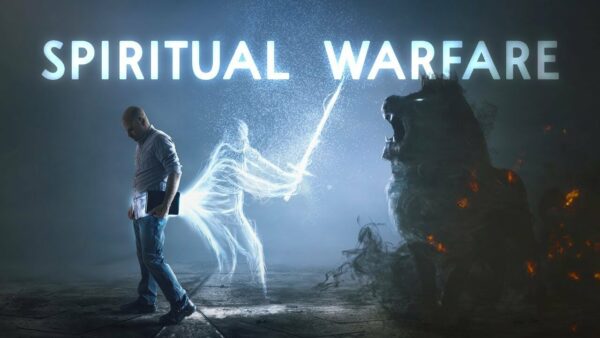If I could extract two things from the American Church and cast them into the Lake of Fire…one would be Dispensational Eschatology and the other would be this Spiritual Warfare stuff. Because I think it has done way, way, way more damage than any good. And rather than looking at our own culpability in the way that we ourselves are subject to greed, jealousy, racism, pride, arrogance, and all the other besetting sins, we don’t look at that at all. –Skye Jethani, on Holy Post Podcast #550: Demons, Democrats, & Dominionists
The Holy Post episode covered some of the same territory in the podcast as this week’s article in Baptist News Global entitled “The New Apostolic Reformation drove the January 6 riots, so why was it overlooked by the House Select Committee?”, while making some additional connections between other influential characters and movements in pop Evangelicalism including Bill Bright, the 10/40 window, and the Fellowship.
Teachings about Dispensationalism and Spiritual Warfare have shaped and shadowed my journey in Evangelicalism since the mid-1970’s. The two themes are inexorably intertwined. According to those teachings, we are engaged in a spiritual battle that is unfolding according to a plan for the ages, the truth of which was miraculously unlocked by a disenfranchised Anglican named John Nelson Darby in the mid-1800’s. For eighteen centuries before his revelation, per adherents, the Church got it all wrong.
I wrote here about the effect that the dominance of the Rapture as settled orthodoxy has had on Christian culture. I’ve also written about my burnout with those who see everything in terms of spiritual warfare. The net effect of these teachings seems to be a strange brew of terror of being left behind and hubris at having a front-row seat at the spiritual WWF going on all around us.
Two authors of fiction cemented this default worldview of many Evangelicals, even if said Evangelicals never read the work of either author: Frank Peretti’s spiritual warfare stories beginning with This Present Darkness, which released in 1986 is a kissin’ cousin to Jerry Jenkins’s Left Behind series, which became a best-seller beginning in the mid-1990’s.Themes of demonic activity are baked into the Dispensational script for the End Times. These authors weren’t creating new ideas, but they transformed already-dominant pop theology on those two topics into consumable spiritual horror stories that promised to help adherents win the real-life battles they’d face during the dark, dark Last Days. These were key theology texts for Harry and Mary in the pew.

I’m with Skye. I, too, have witnessed incredible damage unleashed on both Church and culture because of Dispensational Eschatology and Spiritual Warfare teaching, including creating real trauma for many who grew up in Evangelical circles, cultivating an environment ripe for conspiracy theories to flourish, or storming the Capitol in Jesus’ name.
i believe Jesus is returning to the world he loves, and that spiritual warfare is a reality until he does – but I also see the effect that bad theology (Dispensational Eschatology) and flogging a secondary thing into primacy (Spiritual Warfare) has had on us all. Error has had breathtaking real-world consequences, as it always has throughout Church history. We are reaping what has been sown like invisible poison into the spiritual air we all breathe.
One valuable gift that the spiritual deconstruction conversation has brought to the American Evangelical Church in recent years is a willingness to challenge the dominant narrative created by Dispensational Eschatology and bad Spiritual Warfare teaching. While some who may question that narrative risk being branded as anything from “Lukewarm” to “Apostate” to “Flaming Heretic” in their specific Church circles, there is space today like I’ve never seen before to do the hard work of growing toward maturity, and allowing the Spirit to prune fruitless, faux branches from our faith. As Russell Moore wisely noted in this Christianity Today piece, “The question is not whether we will deconstruct, but what we will deconstruct.”
After I listened to the Holy Post podcast earlier this week, I found myself imagining what it would have been like to be a part of an Evangelicalism for the last five decades that wasn’t influenced by Dispensationalism and so much Warfare teaching. It was an interesting thought experiment to dream of an Evangelicalism that looked like this:
- Instead of creating an environment where conspiracy theories flourished like a fallow field full of weeds, there was instead a commitment to cultivate a desire for truth.
- Instead of allowing culture warring to be a proxy and extension of our addiction to spiritual warfare, there was a seriousness about the spiritual disciplines of regular self-examen and confession as a way to address those besetting sins and learn to love our neighbors as we love ourselves because we are loved by God.
- Instead of fetishizing the idea of Fantasy Israel using those decoder ring Dispensational charts, there was a commitment to addressing anti-Semitism in the Church’s history, theology, and present practice and in truly cherishing the single unbroken story of redemption contained in Scripture from “In the beginning” of Genesis 1 to “Come, Lord Jesus” at the close of Revelation 22.
- Instead of endlessly attempting to decode the books of Daniel and Revelation for those who are looking for special knowledge that is a kind of spiritual equivalent of insider trading, the Church both individually and corporately sought instead to decode what it meant to be salt and light in this hurting world.
- Instead of pillorying people who questioned Dispensational Eschatology and lopsided Spiritual Warfare teaching as Bad Christians (or worse), there was a movement toward meaningful John 17 fellowship with those who share a common confession to core dogma, with plenty of grace for differing convictions on matters of doctrine and opinion.
- Instead of believing that fear and anger are virtues, we cooperated with the Holy Spirit in cultivating the fruit of the Spirit in our lives and in our faith communities.
What would this church look like? I am hoping that as more in the Church come to terms with the corrosive effects of Dispensational Eschatology and the unhealthy emphasis on Spiritual Warfare and repent, future generations might find out. Lord, please help us.
Cover photo by Marvin Meyer on Unsplash



I am so thrilled to find SOMEONE writing on this topic! But I can’t understand why many more people are not renouncing the errors of Dispensational Theology. I am longing for the day when the church will love Israel for the right reasons- not because it fulfills their eschatology. I believe we were meant to be the Messianic community of believers together. The history is painful. It is time for believers in Jesus Christ to seek the truth. Thank you for this important post.
Interesting article. I am now a Hebrew Catholic but I grew up in an Evangelical Anglican environment where we strongly held to the idea of a pre-trib pre-millenial rapture. Do you think it really did harm as I find I sometime miss believing in it even though I know now it is totally wrong understanding of Scripture? I certainly agree with you about an unhealthy obsession with spiritual warfare as we also have some Catholics in the charismatic movements like that.